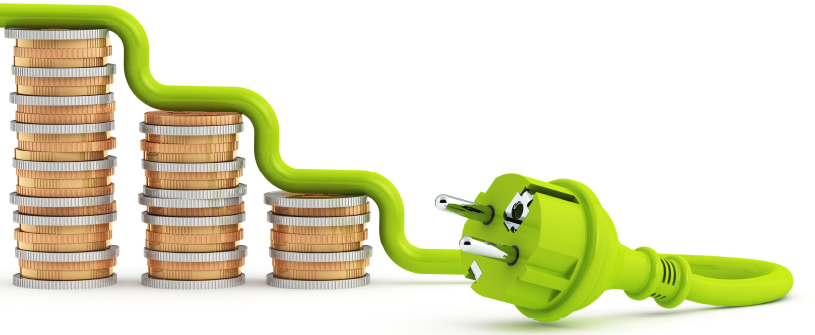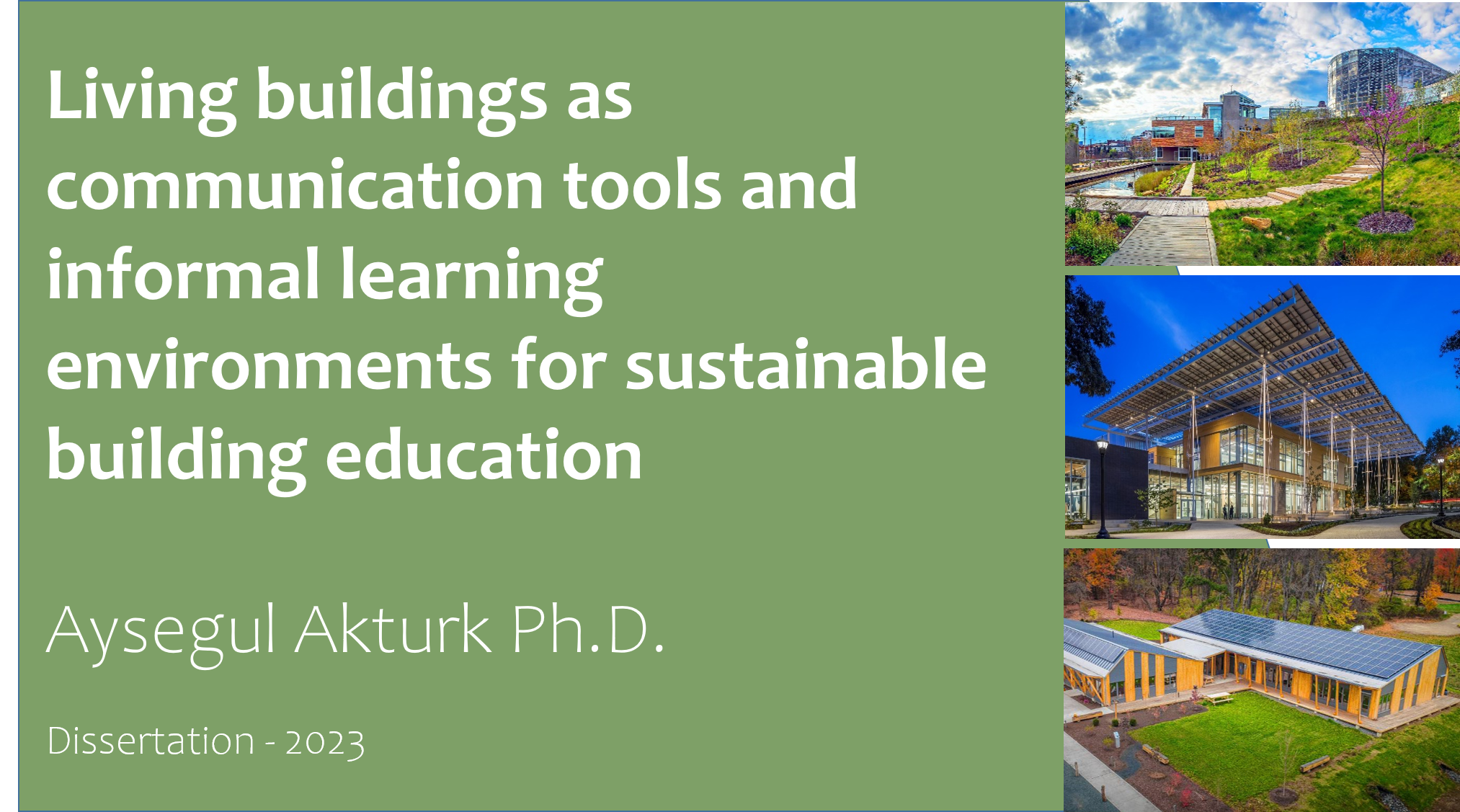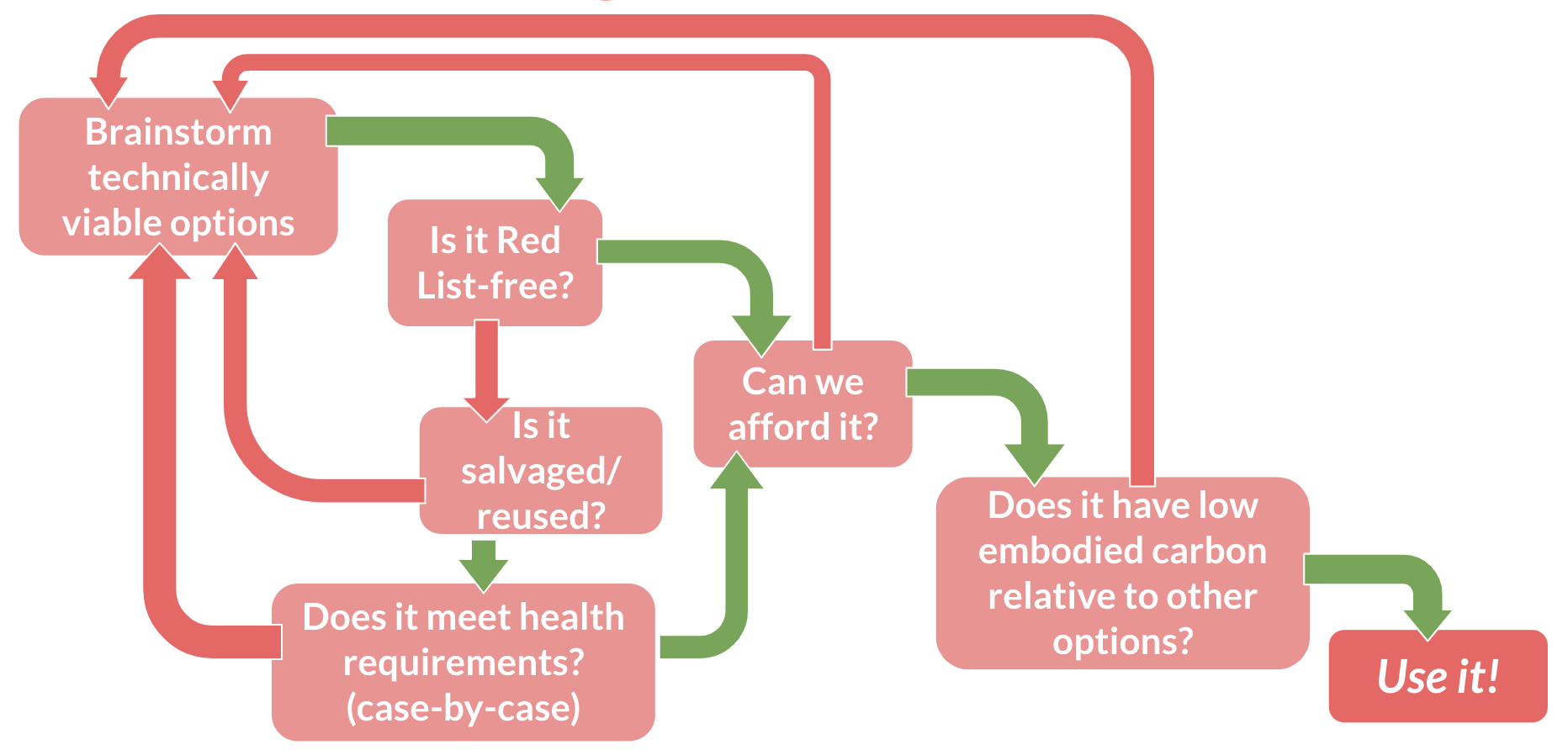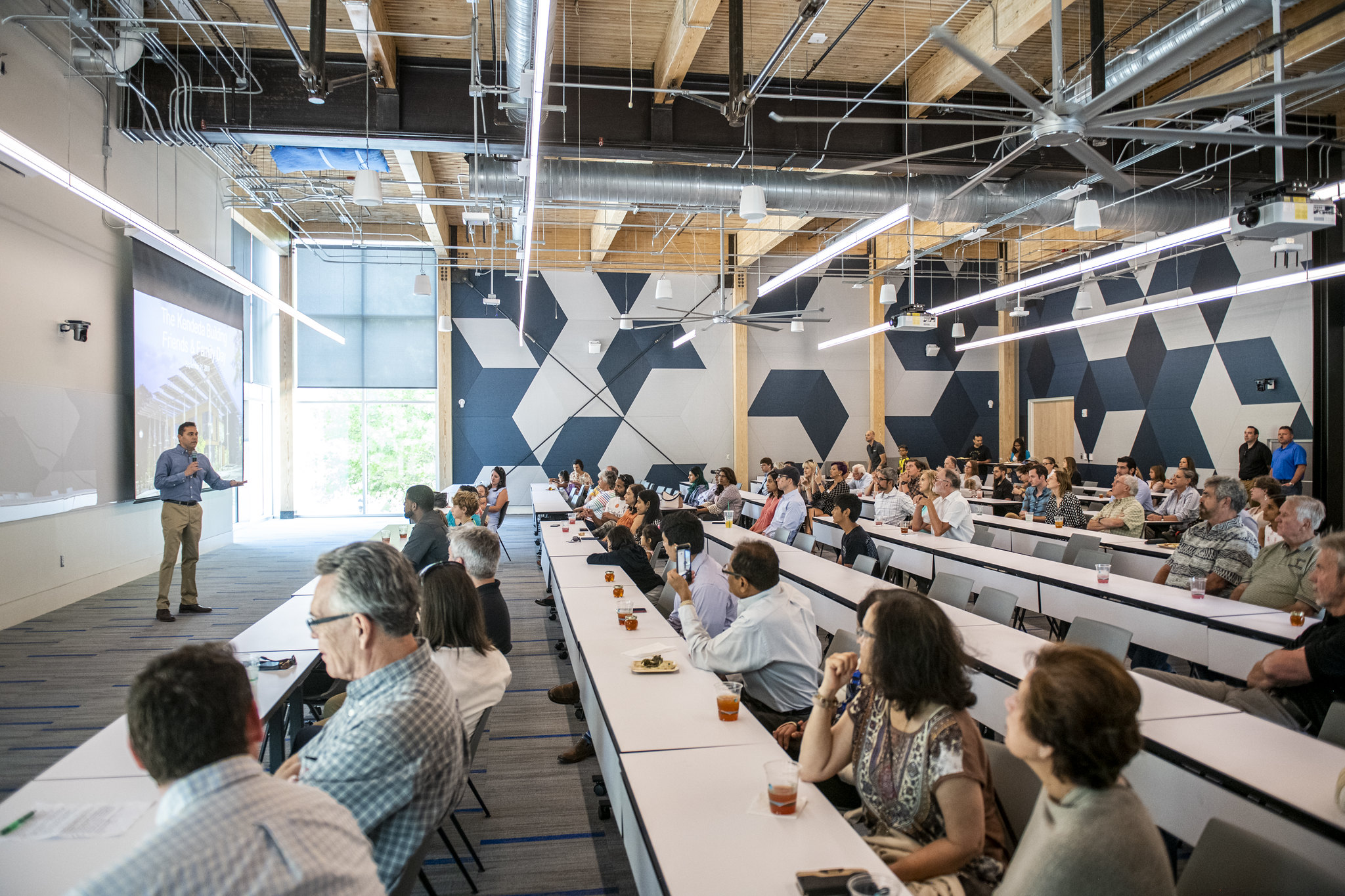Electricity: Reducing Costs
Electricity costs are rising. Certain Georgia ratepayers will experience multiple increases in 2023 alone.
This page contains up-to-date information that can help organizations lower electricity costs, which are savings that they can reinvest in their core mission.


2023 Dissertation: U. of Missouri - Columbia
In 2023, Aysegul Akturk graduated from her doctorate program by finishing her dissertation study about Living Buildings in which The Kendeda Building was one of her case studies. Congratulations Dr. Akturk!
Materials Selection: Healthy + Low Carbon
Selecting materials free of Red List materials was the toughest aspect of our Living Building Challenge journey. Our experience with The Kendeda Building also taught us that there could be tension between a product that is free of Red List materials and carbon pollution. In other words, the Red List product could be a more carbon polluting option whereas the lesser carbon pollution product may have trace amounts of Red List chemicals.

Image from Dartmouth College.
Salvaged Materials Carbon Analysis (2021)
Incorporation of salvaged materials also reduces carbon pollution. In 2021 we performed an embodied carbon study of The Kendeda Building’s (28) salvaged items that includes the material salvage and tree save programs. Our analysis includes a review of the virgin materials used through the open source EC3 tool. Please download the research document and visit the free/open source EC3 tool https://www.buildingtransparency.org.
Maximizing Condensate Collection (2023)
This paper by Georgia Tech researchers uses The Kendeda Building to demonstrate how a water and energy sustainable building’s heating, ventilation, and air conditioning system may be operated to maximize condensate production while upholding user thermal comfort and energy consumption requirements.
The paper was published in the American Society of Civil Engineers - Journal of Sustainable Water in the Built Environment.
The Kendeda Building's dedicated outdoor air system dehumidifies humid outdoor air that is brought into the building.
Acoustical Design (2022)
The acoustical design for The Kendeda Building included: exterior noise control, mechanical systems noise control, sound isolation, impact isolation, and reverberation control. In addition, we had to adhere to the Living Building Challenge and identify acoustical products that do not contain Red List materials or chemicals (777 in total) that have the greatest impact to human and ecosystem health. We optimized acoustical performance while taking into account occupant health.

We are pleased to report that the users are happy with the acoustical atmosphere in the building. The following narrative outlines some of the specific challenges and acoustical opportunities in the building but are not an exhaustive listing of all aspects of the acoustical consulting on the project. Read the case study to learn more.
Equity Zine (2021)
This Vertically Integrated Project (VIP) undergraduate research team, affiliated with and co-led by Serve-Learn-Sustain (SLS), focuses on advancing social equity and community engagement in The Kendeda Building, the EcoCommons, and beyond. The team also collaborates with the NAACP and The International Living Future Institute to deepen equity as a core component of the sustainable building sector overall. The Equity Zine was published by one of the VIP’s student research groups in 2021.
ILFI (2021)
The Kendeda Building for Innovative Sustainable Design became a fully-certified Living Building in 2021. The Living Building Challenge is a program of the International Living Future Institute (ILFI). This is the building's official ILFI case study that presents how the building satisfied the rigorous Imperatives of the Living Building Challenge.

Campus Sustainability Hub (2021)
The Association for the Advancement of Sustainability in Higher Education (AASHE) is the leading association for the advancement of sustainability in higher education. This 2021 case study presents Kendeda Building historical information, timelines, and lessons learned.